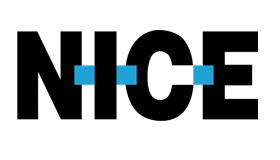Catherine Forino at NICE takes a look at the customer convenience revolution and scaling up CX for modern customers.
What customers want; what customers need; whatever makes them happy sets you free…
Okay, I know those aren’t the exact lyrics… but they still ring incredibly true when considering what great customer experience (CX) means for your business.
And meeting your customers’ needs in the most convenient way possible not only drives great CX but also promotes long-term loyalty and business growth. The easier things are for your customers, the better they are for your organization.
But “convenience” is no longer just a blanket term for meeting customer expectations—the bar now rests at exceeding expectations at every turn, and that requires enhanced tools, platforms, and processes to help you do the heavy lifting during every interaction.
But all of this is a moot point if you’re not sure what those expectations are. Sitecore found that 66% of customers will abandon a brand after just one bad experience.
In a survey from the National Retail Federation (NRF), it’s shown that 97% of customers have backed out of a purchase because it was inconvenient to them. That’s a lot of missed opportunities and potential sales blowing out the window.
The modern consumer values not just the quality of the product or service but the overall experience, encompassing everything from personalized interactions to quick resolution.
They expect businesses to proactively anticipate their needs and offer convenient solutions when, where, and how they want them.
Here’s the bottom line: It’s time for your organization to scale up customer convenience initiatives to take CX to the next level, delivering seamless customer journeys across voice and digital channels to obtain longstanding loyalty.
NICE hosted a Master CX Class webinar series which featured a panel of industry experts examining today’s most pressing CX topics.
Specialists gave in-depth discussions into how organizations can exceed customer expectations, scale up technology, and what the future holds for AI in customer experience.
I was thrilled to have taken part in the last webinar of the series, “Today’s customers demand convenience. Are you delivering?” with Robin Gareiss, principal analyst and CEO of Metrigy, and Annette Miesbach, a fellow senior product marketing manager at NICE.
This session offers a deep dive into how scaling your operations to better accommodate customer convenience allows you to deliver personalized and fast service, elevating your business results and securing customer loyalty.
The Power of Proactive: Reach Out to Reel Customers In
Digital transformation has significantly influenced customer preferences. Not only that, but the customer journey also moves pretty quickly these days.
To stay ahead, the best practice is to act ahead, proactively meeting and engaging with customers on their channel of choice.
And artificial intelligence (AI) is here to take your proactive approach even further. It’s like the Beatles once said: I get by with a little help from my friends… “Friends” meaning advanced applications and systems that you can incorporate into your CX platform to help intuitively guide customers and agents through any type of interaction.
AI-enabled tools enable your business to:
- Provide agents with important interaction context
- Gather feedback from customers
- Verify customer identities
- Triage issues and route to the best agent
- Help customers in self-service channels
- Complete transactions quickly and efficiently
One of the most beneficial assets to an organization is customer feedback. Think about it. Feedback provides valuable insights into customer preferences, satisfaction, and expectations.
It serves as a direct line of communication between a business and its customers and allows leadership to address concerns and make improvements.
According to HubSpot, 42% of CX professionals state that the AI tools they use to collect and analyze customer feedback significantly improves the customer experience.
Feedback fosters continuous improvement in agent performance and interaction outcomes, leading to a significant upward trend in customer satisfaction.
Companies that take customer feedback and incorporate it into automated workflows successfully enhance their proactive outreach capabilities.
Create Smooth Transitions for CX That Shines
As customers navigate a diverse array of touchpoints, from traditional phone calls to digital platforms and social media, the ability to orchestrate smooth transitions between channels is crucial to positive CX outcomes.
Tip: Prioritize fluidity between channels to cater to the varied preferences customers have.
Gareiss of Metrigy noted in the webinar that nearly 70% of customers prefer to transition from channels such as email or chat to a phone call with an agent if their problem isn’t getting resolved.
Though great strides have been made toward digital channel advancement, voice remains a prominent customer interaction channel, particularly when the issue at hand needs to escalate to a live agent for the best outcome.
Rather than thinking of voice as an outdated dinosaur that isn’t capable of evolution, think about what will help escalate that interaction as smoothly as possible, and what agents need to handle it quickly and efficiently.
That’s where AI is stepping up to the plate, powering advanced solutions such as:
- Predictive routing
- Real-time guidance
- Virtual agents
- Interaction analytics
Metrigy reports that 38% of companies pair agents with agent assist, with many more planning to do the same this year. This helps agents resolve issues faster and with much more context.
In fact, when paired with agent assist, live agents are known to handle 7.7% more simultaneous chats. Even virtual agents simply opening and closing chats will reduce workloads and remove onerous, repetitive tasks from an agent’s plate.
With tools like these available, efficiency, agent satisfaction, and CX all improve. Happy agents, happy customers, a happy bottom line—everyone wins!
Make Digital Interactions as Seamless and Accessible as Possible
Typically, a company will have plenty of channels available for customers to interact with—it’s the lack of integration that throws a wrench into the customer journey flow.
Zendesk’s 2022 Customer Experience Trends Report states that 73% of consumers want to be able to move seamlessly between channels.
What many organizations might not know is that most need to improve their self-service strategy in order to deliver those seamless interactions.
What Can You Do to Make Self-Service Improvement Easier?
- Use AI to regularly and automatically update your knowledge base
- Use AI to determine whether self-service is the right place for customers to get a resolution
- Implement AI for predictive routing
Give Customers the Convenience They Expect and Deserve
The customer convenience revolution is reshaping the landscape of CX, driven by the changing expectations of modern customers.
Businesses that strategically scale up their CX efforts, leveraging technology and data-driven insights, are well-positioned to thrive in a fiercely competitive market.
A report compiled by industry expert Shep Hyken found that 74% of American consumers are more likely to recommend a brand or company if they provide a convenient customer experience. That reputational success could be yours if you play your CX cards right.
This blog post has been re-published by kind permission of NICE – View the Original Article
For more information about NICE - visit the NICE Website
Call Centre Helper is not responsible for the content of these guest blog posts. The opinions expressed in this article are those of the author, and do not necessarily reflect those of Call Centre Helper.
Author: NICE
Published On: 11th Apr 2024 - Last modified: 13th Jan 2025
Read more about - Guest Blogs, Annette Miesbach, Catherine Forino, NICE






 NICE is a leading global enterprise software provider that enables organizations to improve customer experience and business results, ensure compliance and fight financial crime. Their mission is to help customers build and strengthen their reputation by uncovering customer insight, predicting human intent and taking the right action to improve their business.
NICE is a leading global enterprise software provider that enables organizations to improve customer experience and business results, ensure compliance and fight financial crime. Their mission is to help customers build and strengthen their reputation by uncovering customer insight, predicting human intent and taking the right action to improve their business. 











